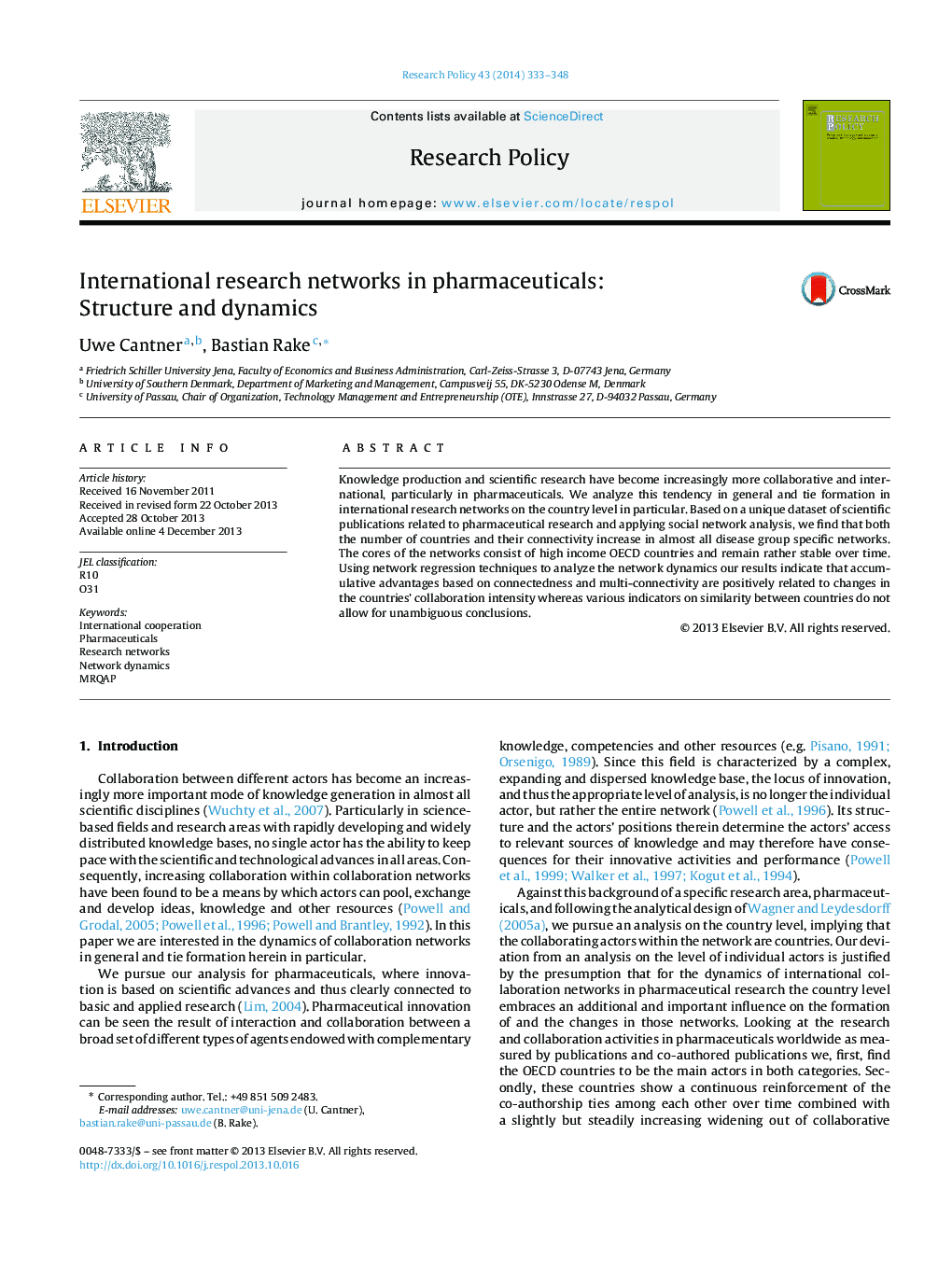| Article ID | Journal | Published Year | Pages | File Type |
|---|---|---|---|---|
| 10483174 | Research Policy | 2014 | 16 Pages |
Abstract
Knowledge production and scientific research have become increasingly more collaborative and international, particularly in pharmaceuticals. We analyze this tendency in general and tie formation in international research networks on the country level in particular. Based on a unique dataset of scientific publications related to pharmaceutical research and applying social network analysis, we find that both the number of countries and their connectivity increase in almost all disease group specific networks. The cores of the networks consist of high income OECD countries and remain rather stable over time. Using network regression techniques to analyze the network dynamics our results indicate that accumulative advantages based on connectedness and multi-connectivity are positively related to changes in the countries' collaboration intensity whereas various indicators on similarity between countries do not allow for unambiguous conclusions.
Related Topics
Social Sciences and Humanities
Business, Management and Accounting
Business and International Management
Authors
Uwe Cantner, Bastian Rake,
